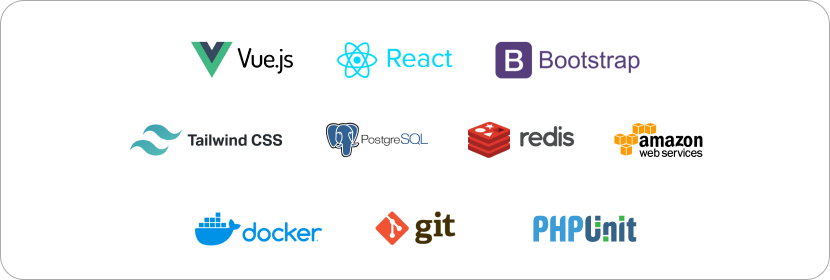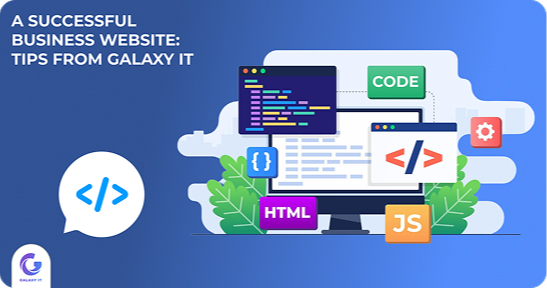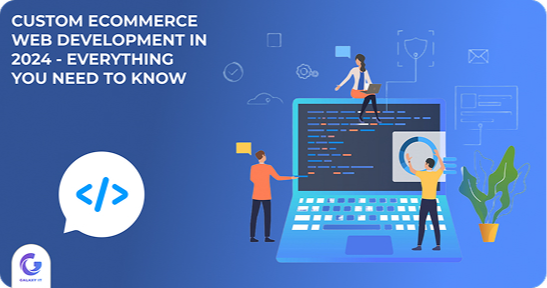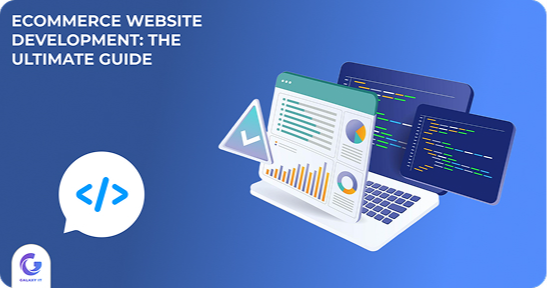Benefits Of Using Laravel for Your Website
- 17.05.2024
- 1 views
- 10 min
- Programming languages for your web application or website
- What is Laravel?
- What Are the Famous Framework Combinations With Laravel?
- Why we recommend building apps and websites based on Laravel
- What Are the Challenges of Using Laravel in Web Application Development?
- Build Your Own Solutions with Galaxy IT
Programming languages for your web application or website
If you find yourself here, chances are you're grappling with selecting the ideal toolkit, technologies, and programming languages for your web application or website, correct? If so, the framework we delve into in this article is likely to pique your interest. But, does it truly live up to the praise from its dedicated online community? Let's delve into that question now, and be sure to explore our firsthand experience working with it.
What is Laravel?
Laravel, as you might be aware, is a freely available, open-source framework built on the MVC (Model-View-Controller) architectural model. It relies on PHP and is distributed under the MIT license. Introduced to the public in 2011, its community of enthusiasts and its feature set have been steadily expanding ever since
Laravel boasts numerous pre-built components that accelerate backend development and minimize potential errors that engineers may encounter when coding manually. Its convenient routing, integrated authentication and authorization functionality, Object-Relational Mapping (ORM), Blade template engine for dynamic web page creation, and extensive package and extension support are among its most lauded features.
These attributes make it a popular choice for developing a wide array of applications, including business applications, online stores, blogs, social networks, catalogs, and more.
What Are the Famous Framework Combinations With Laravel?
Laravel combines well with other popular web development solutions such as:
- Vue.js: For building interactive user interfaces and single-page applications.
- React: Another powerful option for creating dynamic user interfaces.
- Bootstrap: A front-end framework for designing responsive and mobile-first websites.
- Tailwind CSS: A utility-first CSS framework for rapidly building custom designs.
- MySQL and PostgreSQL: Common choices for relational database management systems.
- Redis: In-memory data structure store used as a database, cache, and message broker.
- Amazon Web Services (AWS): Cloud computing services for hosting and managing web applications.
- Docker: Containerization platform for packaging applications and their dependencies.
- Git: Version control system for tracking changes in source code during development.
- PHPUnit: A unit testing framework for testing PHP code.

These combinations leverage the strengths of each technology to create robust, scalable, and efficient web applications.
Why we recommend building apps and websites based on Laravel
Laravel offers several key advantages:
- Convenient Project Structure: It provides a well-organized project structure, aiding in code navigation and project maintenance.
- Easy Routing: With its robust routing system, defining URLs and their corresponding actions is straightforward.
- ORM (Object-Relational Mapping): Eloquent ORM simplifies database interaction by representing database entities as PHP objects.
- Templating with Blade: The built-in Blade templating engine streamlines HTML rendering and template management.
- Simple and Fast Database Migrations: Laravel's migration feature simplifies database management tasks, making database migrations quick and hassle-free.
- Security Features: Laravel includes built-in mechanisms for authentication, authorization, and protection against common security threats like SQL injection, session hijacking, and cross-site scripting (XSS) attacks.
- Abundance of Packages and Extensions: The framework offers a vast array of readily available packages and extensions, enabling rapid expansion of project functionality.
These features collectively contribute to Laravel's reputation as a powerful and developer-friendly PHP framework for web application development.
What Are the Challenges of Using Laravel in Web Application Development?
While Laravel offers numerous benefits, it's important to acknowledge some potential challenges that developers may encounter when using it for web application development:
- Learning Curve: For developers unfamiliar with Laravel or MVC frameworks in general, there can be a learning curve to understand its concepts and best practices.
- Performance Overhead: Although Laravel provides a lot of convenience features, some of them may introduce performance overhead compared to more lightweight frameworks, especially for smaller projects where simplicity is prioritized over feature richness.
- Dependency Management: While Laravel's dependency management system through Composer is powerful, managing dependencies and ensuring compatibility between different packages can sometimes be challenging, particularly when updates are released.
- Customization Limitations: While Laravel provides a lot of out-of-the-box functionality, there may be scenarios where developers need to implement highly customized solutions. In such cases, they may find themselves working against Laravel's conventions, leading to additional complexity.
- Community Support for New Features: While Laravel's community is vibrant and active, support for new features may take some time to develop. Developers relying on bleeding-edge features may encounter limitations in terms of documentation and community support.
- Version Compatibility: As with any framework, maintaining compatibility between different versions of Laravel and its dependencies can be crucial, especially when upgrading existing projects or integrating with third-party libraries.
- Performance Optimization: While Laravel offers performance optimization features, such as caching and queuing, developers need to have a good understanding of these techniques to ensure optimal performance for their applications.
Despite these challenges, Laravel remains a popular choice for web development due to its rich feature set, robust ecosystem, and active community support. With careful planning and ongoing learning, developers can effectively overcome these challenges and leverage Laravel to build powerful and scalable web applications.
Build Your Own Solutions with Galaxy IT
 While we have a strong affinity for Laravel, we understand that it might not be the perfect fit for every project. Our primary focus is aligning the project's technology stack with your business objectives. Whether you prioritize scalability, performance, or specific features, we're committed to tailoring the stack to meet your needs.
While we have a strong affinity for Laravel, we understand that it might not be the perfect fit for every project. Our primary focus is aligning the project's technology stack with your business objectives. Whether you prioritize scalability, performance, or specific features, we're committed to tailoring the stack to meet your needs.
If you're concerned about the technologies and tools used in your project, especially with an eye toward future scaling, don't hesitate to reach out to us. We guarantee to optimize the lifecycle of your web application and ensure that the development process is as resource-efficient as possible. Your satisfaction and the success of your project are our top priorities.









